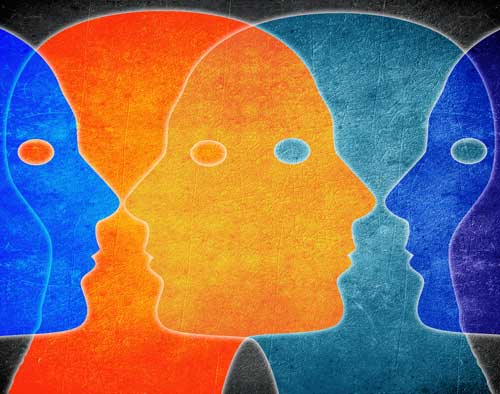Finding coping mechanisms to handle the pressures of everyday life without drugs or alcohol is an important part of the recovery process.
 One post-rehab technique that shows a lot of promise for the release of chronic stress and trauma is Eye Movement Desensitization and Reprocessing, or EMDR. This psychotherapy treatment, expanded from its initial application to help military personnel deal with PTSD, is a way to possibly incorporate a non-invasive approach to managing mental health issues that may contribute to addiction.
One post-rehab technique that shows a lot of promise for the release of chronic stress and trauma is Eye Movement Desensitization and Reprocessing, or EMDR. This psychotherapy treatment, expanded from its initial application to help military personnel deal with PTSD, is a way to possibly incorporate a non-invasive approach to managing mental health issues that may contribute to addiction.
Understanding EMDR
American psychologist Francine Shapiro first noticed a connection between thought patterns and eye movements while walking in a park. Pondering over some negative experiences, she felt a subtle shift in her thinking as she glanced at things around her. When she realized she suddenly felt less distressed, she theorized that eye movements stimulated neural network connections prohibited by chronic stress and trauma.
Essentially, Shapiro believed the body’s natural ability to heal may also apply to the brain. For example, if you cut yourself, your body has a process that heals the injury. This is usually automatic unless a foreign object is lodged in the wound, comprising the body’s healing approach until it’s removed. If someone suffers serious trauma, his or her mind replays the situation or event through memories and dreams. This replay process is a foreign object preventing the brain from naturally healing.
When someone experiences PTSD, it affects the amygdala, an area of the brain responsible for the development of emotional memories, especially those rooted in fear. A trained EMDR mental health professional uses a combination of hand and eye movements, audio stimulation, and progressive counseling to help the neural network acknowledge the trauma, accept it, and eventually resolve any experiences associated with it.
Therapists guide a patient through eight phases of EMDR treatment, which include a history intake, treatment planning, event closure, and evaluation. Based on his or her progress, the therapist may also recommend additional coping mechanisms. Usually significant treatment is accomplished within 12 sessions.
As this applies to substance use recovery, EMDR may enable an individual to identify and potentially eliminate traumatic causes for addition much more quickly than conventional talk therapy alone.
Pros and Cons of EMDR
The practice of EMDR to aid in recovery is recommended by numerous organizations, such as:
- The American Psychiatric Association
- The World Health Organization
- The U.S. Department of Defense
There are literally thousands of cases and multiple research studies that support the effectiveness of using EMDR alone or in tandem with other modalities.
There are also detractors who say the process isn’t as effective as what cognitive behavioral therapists have always done. Quoted in an article about EMDR in Scientific American, Harvard University psychologist Richard McNally said, “What is effective in EMDR is not new, and what is new is not effective.”
The key factor in understanding how trauma impacts people is the power of resiliency. At any time, any one of us can experience the tragic loss of a loved one, a catastrophic illness, financial devastation, and other life-changing circumstances. In fact, many of these things may be catalysts for or the result of a substance use disorder.
Resilience is the capacity to adapt to trauma, adversity, chronic stress, and tragedy. Someone may still feel great sadness or pain because of one of these things, but this doesn’t mean she’s less resilient. Her thoughts, actions, and behaviors are what demonstrate this characteristic.
Use All the Tools in Your Toolbox
Part of overcoming adverse situations is to face them through progressive recovery techniques, using a variety of means to sustain sobriety.
EMDR therapy is supported by the Center for the Treatment of Anxiety and Mood Disorders, so if you’re trying to avoid relapse, it may prove helpful in this area. You may also want to take advantage of 12-step programs, sober living communities, and additional therapeutic specialties.
Additional continuing care options such as Twin Lakes aftercare services also provide valuable connections to support your recovery. Review dates and locations for alumni meetings for additional information.



